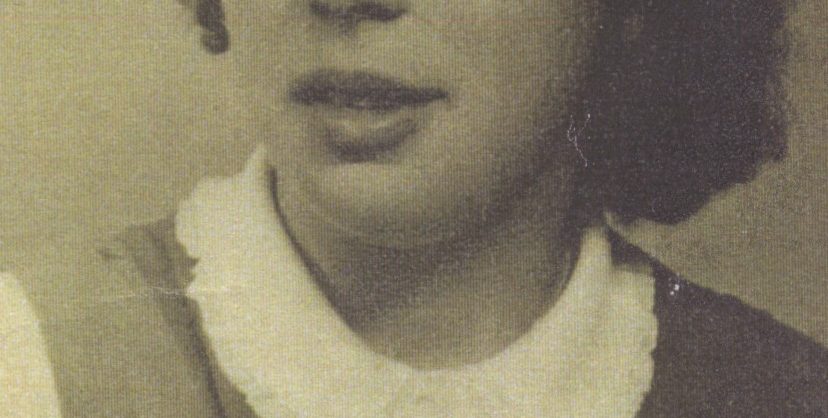Rina, daughter of Hannah and Zvi, was born on January 1, 1929 in Berlin, the capital of Germany. As a child, she witnessed the suicide of her father, who took his life when the Nazis came to his house to arrest him. It made its mark and accompanied her to her last day. In March 1938, the status of the Jewish community in Berlin was revoked. In November, the Kristallnacht pogroms took place, during which hundreds were murdered and many restrictions were imposed on the Jews. At the outbreak of World War II, some 75,000 Jews lived in Berlin. Many of them were required to vacate their apartments as a cover for their deportation eastward. Until 1943 most of them were deported to extermination camps. During the war Rina’s mother perished, it is not known how. Young Rina arrived in Belgium for a children’s home in Marken. Instead, where many children who survived the terrible inferno, Rina Mazor found her sufferings and slowly recovered. In July 1946, she immigrated to Eretz Israel with a group from the same children’s home in the framework of the Youth Aliya. The group boarded the “Jewish Soldier” ship – a small steamboat purchased by the Mossad for Aliyah Bet of the Hagana through a Greek mediator. On July 14, 1946, the ship left the port of Antwerp, Belgium, carrying 512 immigrants, including members of Zionist pioneering movements, relatives of soldiers and prisoners of concentration camps who had arrived as refugees in Sweden. Before arriving in Israel, the foreign crew feared a confrontation with the British and demanded that they sail to Cyprus, but the escorts and the illegal immigrants took over the ship and forced the crew to take it to Haifa. On July 31, 1946, the ship entered the port of Haifa and was crowned by the British. Two days later the sick, the elderly and the children were taken off the ship. The rest of the immigrants, including Rina, were transferred to the Atlit detention camp. When Rina was released from the detention camp, she was taken with her friends to the children’s home in the Youth Aliyah Society of Kibbutz Be’erot Yitzhak in the northwestern Negev. In those days she learned of the loss of her entire family in Germany. Kibbutz Beerot Yitzhak was located in a desolate and remote area of any Jewish settlement, on the road from Gaza to Be’er Sheva, and since the beginning of the War of Independence, its members had suffered harassment from their Arab neighbors. Its proximity to and exit from Gaza has made the kibbutz one of the most important settlement settlements in the Negev. Located on one of the Egyptian army’s invasion routes to Israel, the kibbutz was attacked on the first day of the invasion, May 15, 1948, the day after the declaration of the state. However, despite the heavy bombardments and bombardments, the defenders of the kibbutz held sway. Even when the Egyptian armored assaults and other attacks by the invading armies increased, the kibbutz remained intact. After the war, the destroyed kibbutz was abandoned and its residents moved to their present location, south of Petah Tikva. A memorial site for the community of Shacharv is located in the fields of the Negev, between Kibbutz Nahal Oz and Moshav Alumim. After the kibbutz was destroyed in battle, Rina joined the Ein Hanatziv group in the Beit She’an Valley in May 1948. In mid-August 1948, she joined the IDF. She completed a wireless course and was later assigned to the communications corps as a telephone operator. Rina served in the “Gideon” camp near the kibbutz, enabling her to spend her vacations and leisure time between her friends from Belgium. She was very proud of her service and media. In her last position, she served in the headquarters of the 91st Battalion of the Ninth Brigade (Oded Brigade). On May 15, 1950, Rina died during her service. Twenty-one years old when she died. Was taken to eternal rest in the cemetery in Kibbutz Ein HaNatziv, which is the “last bastion.” The last survivors of the Holocaust are survivors of the Holocaust who survived the last remnant of their nuclear family (parents, brothers, sisters, sons and daughters) who experienced the Holocaust And / or in concentration and extermination camps and / or in hiding and hiding in Nazi-occupied territories and / or fighting alongside members of the underground movements or partisans in the Nazi-occupied territories who immigrated to Israel during the War of IndependenceThe second or second day, they wore uniforms and fell in the ranks of Israel.
